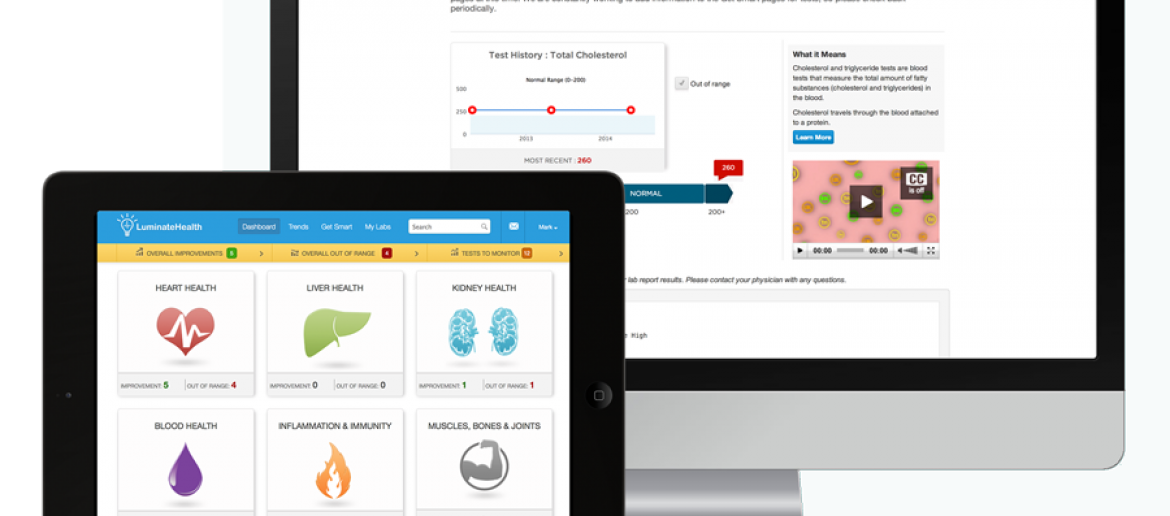The deadline requiring labs to provide test results directly to patients if they request them ended this month as part of the Omnibus Final Rule. Although physicians will still get a copy as usual, Luminate Health is one of the companies that views the rule change as a great way to get patients more interested in managing their own health. In a phone interview with Luminate Health COO Shally Madan, she said she anticipates that it will create more meaningful discussions between patients and their physicians.
Madan said the company sees a way to make patient information more accessible by converting a page full of numbers and medical terminology into information that’s meaningful to them.
“You have to give relevant context — that will ultimately be what improves patient engagement,” Madan said. That includes everything from the most commonly ordered, routine tests, tests for chronic conditions and more sensitive testing such as for a cancer diagnosis 0r for STDs.
Rather than the defensive posturing I expected from providers who no longer have complete control over how this information is disseminated, to their patients, Madan said they have generally been supportive of what the company is doing. On the other hand, physicians still get the test results earlier than patients, particularly in special situations when the test results could be bad news.
The San Francisco, California company, which graduated from the Blueprint Health accelerator last year, partners with sizeable, regional labs. The national chains have the resources to do their own direct to consumer lab result delivery. Luminate charges a monthly service fee that covers applications around the platform.
Patients have to request this information be sent to them, so if they’d prefer they can opt against receiving immediate results. monthly service fee labs pay for the applications pretty standard model across labs
Medivo also provides lab results to patients through its acquisition of WellApps. The company expanded its network of laboratories and health monitoring modules, across obesity, rheumatoid arthritis, hepatitis B, HIV and others.


